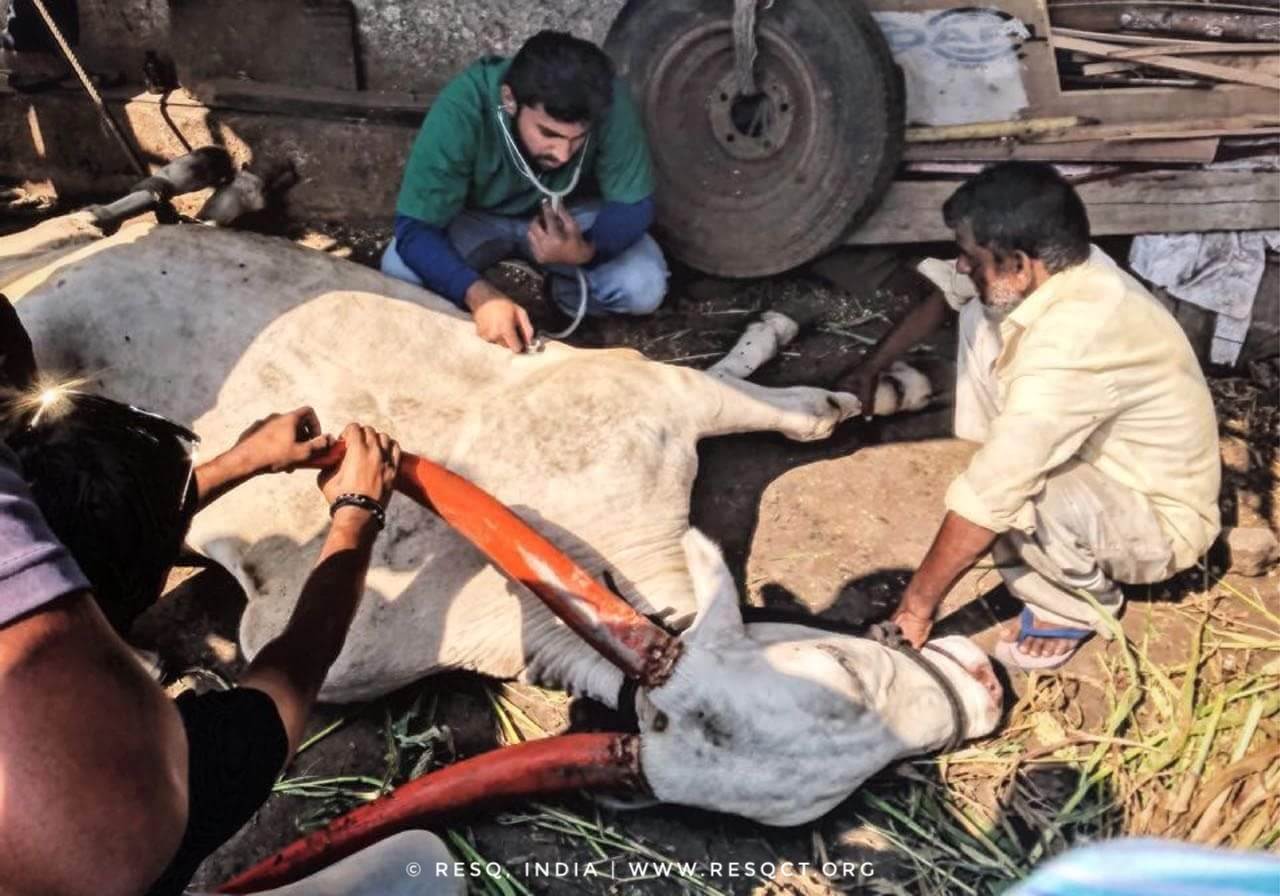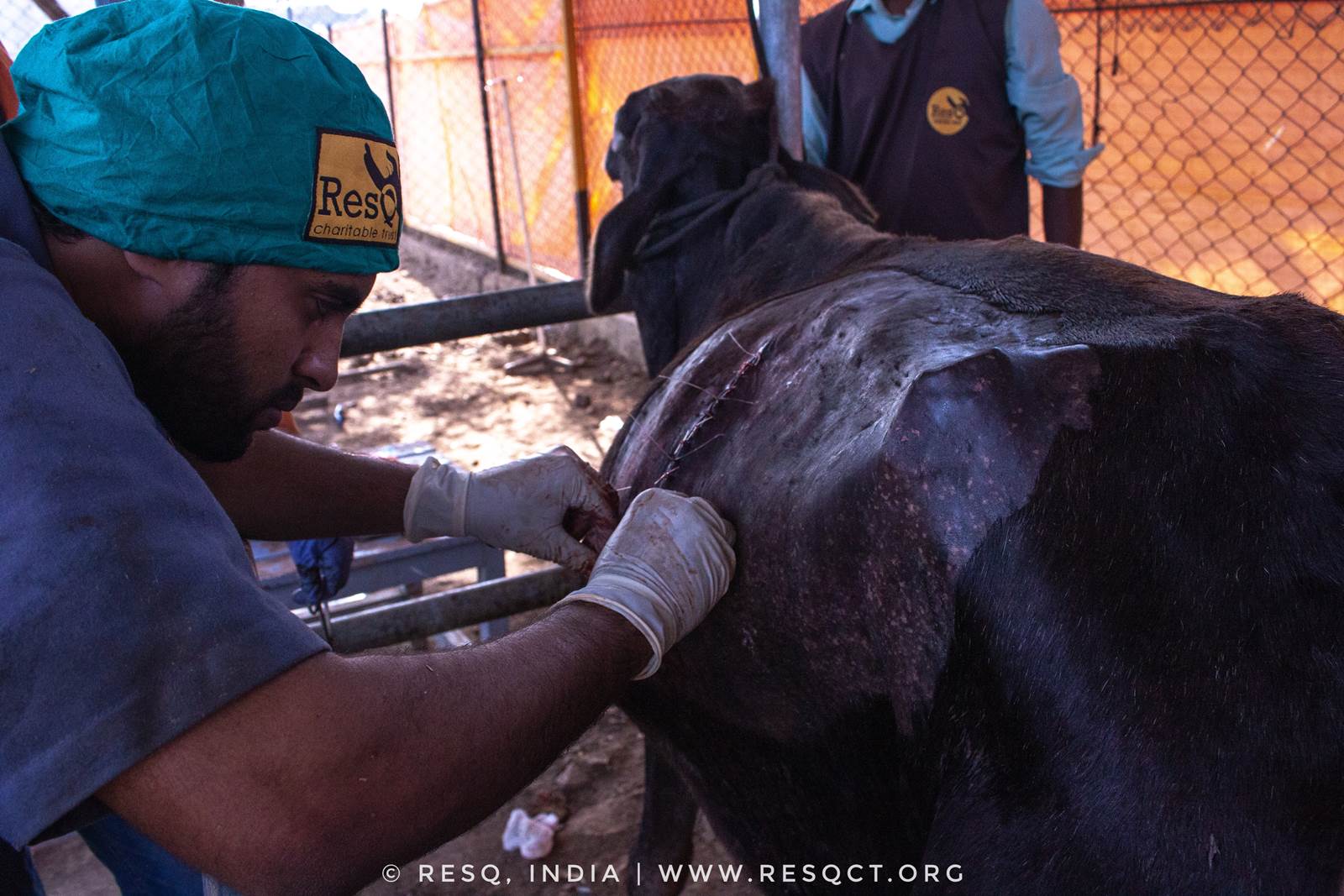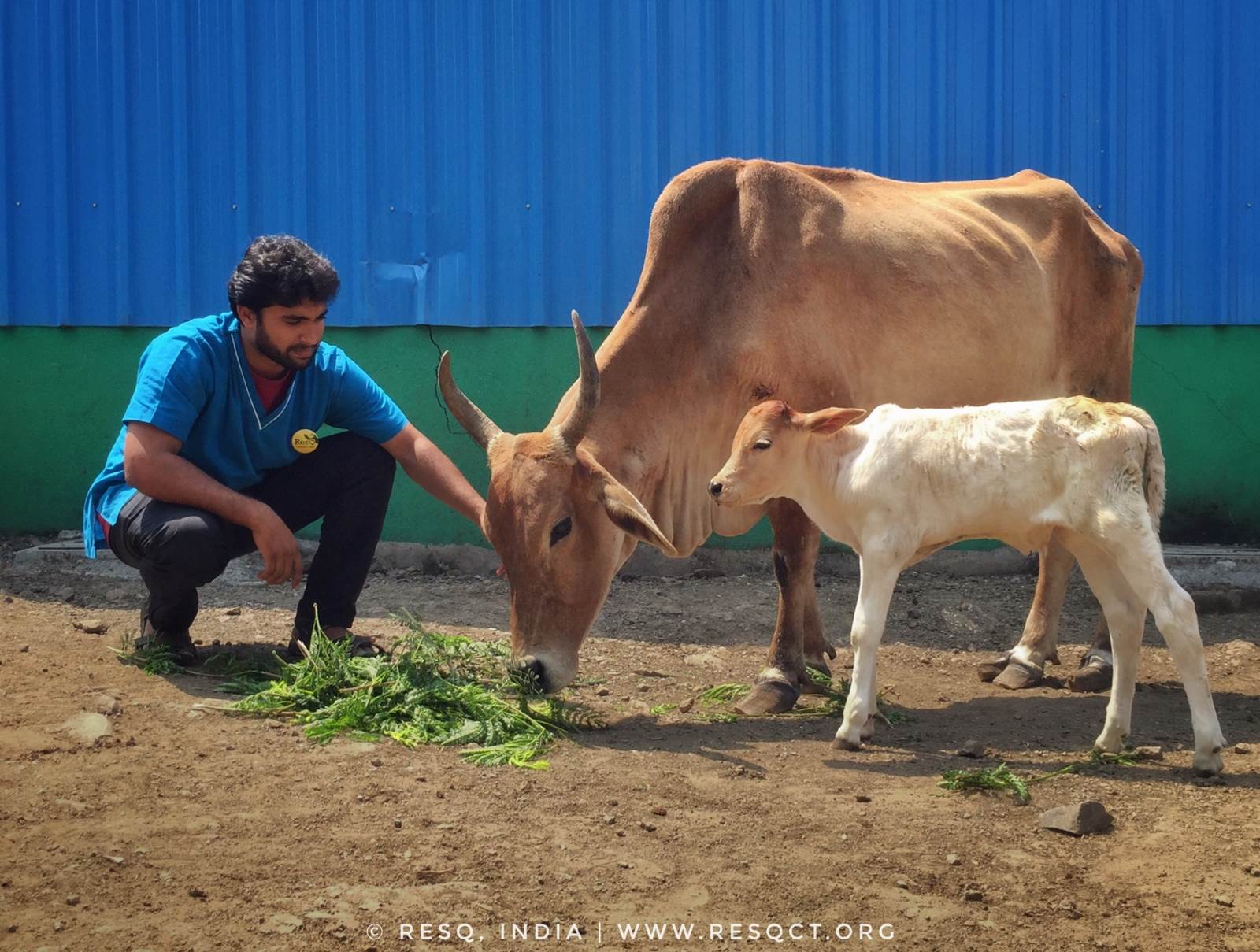Despite holding great significance across various segments of society, religion being the biggest, we are reported with an average of 20 cases of injured cows in a month (the highest being 30 cases in a particular month). From injuries caused by hit-and-run cases to stomachs that need to undergo rumenotomy surgeries to extract staggering volumes of plastic, ‘plastic cows’ are a sad reality of the age we are living in.
The number of cows we are being reported with is causing grave concern to us. On the one hand, we have this growing number and on the other, we cannot stop accounting the common man’s dependence on them. Forming such a large part of daily lives, a common man literally wakes up with his dependence on a cow -- the morning chai!
While we mention the over-dependence, a cow’s religious significance merits some light too. The “Gau Mata” that has given rise to a whole new class of vigilantes, this benign bovine somehow does not cease to be in the news; whether it is a cow getting married to a sacred bull, having a man beaten up for transporting cows, or for the diminishing number caused by plastic!
What is causing plastic cows?

Urban garbage and open dumps are a feasting ground for not only flies but even cows who hope to find some vegetables (fresh or rotten) in plastic bags disposed in the dumps and sometimes simply on the road! While this can be said to be the primary reason for ‘plastic cows’, abandonment follows a close second and makes this occurrence even more prominent!
Whom do these cows belong to?
This is one question that does not stop haunting us when we read about the soaring number of plastic cows and their deaths. Who are these cows? Who owns them? Why are they eating off dumps? Unfortunately, the only two factors we see driving this condition are poverty and apathy of their owners.
While owners buy cows in a bid to yield money from their milk or further sell them off to the dairy industry, and sometimes inheritance, there are several medical causes that may hinder the owner’s intent. Losing hope and interest, the owners usually leave their cows to feed themselves. Not to mention the disturbing fact that abandonment is sadly a simpler alternative!
Having said that, abandonment also comes without a choice for some owners, especially farmers. Medical care can be quite an expensive affair for these farmers, who are already making ends meet for their own survival. Thus, despite a great level of attachment, farmers may sometimes be left with no choice but to let their cow go!
Further complications

While the benign bovine leaves to fetch for food, she may not always be lucky and have to search harder through streets and dumps, leaving her at a further risk of dehydration. If it’s a good day and she has managed to find some food or plastic, she is even at greater risk -- that of not eating right. Plastic ingestion lines up the cow’s stomach hazardously, so much so that even if fed with good fodder (if lucky once a day), the cow will not be able to consume it! You can only then imagine the quality of milk that a cow, not eating right, will be producing should it be physically possible. That’s not all: potential obstruction of rumination may also cause collapsing, eventually leading to death!
Precautionary measures
There are not a lot of precautionary measures to stop more plastic cows from coming into existence as the causes are pretty much straightforward. The measures further narrow down since “plastic” seems to be the only catalyst of this rather appalling situation. However, listed below are some basic measures:
- The imposition of plastic ban definitely gives way for a better future
- Appropriate disposal of inorganic waste
- Closed garbage dumps
- Choosing biodegradable over plastic
What we can do together

The alarming state that this is, our vets have had to perform several emergency medical treatments, mostly rumenotomy. Rumenotomy is the medical procedure of retrieving foreign objects from inside the stomachs of a cow. This is essential to determine the cause of the collapse which largely is the ingestion of metals and plastic. Plastic cows account for a large number of cattle that RESQ has been reported with. Our vets have performed rumenotomies that have retrieved as much as 85 kilos of plastic waste, nails, glass, screws, and other small metal objects!
We can only imagine the effect of abrasive metals and something as obstructive as plastic inside cows! A sad example of this is Nandi who was reported to us with stomach bloating which required rumenotomy at an emergency. Affecting his natural back structure, Nandi was loaded with 85+ kilos of nails, glass pieces and of course plastic waste! This caused Nandi to lose appetite among many other serious conditions. Similar to Nandi, we also had Gayatri from whom 60 kilos of trash was retrieved. Trash that included plastic and metals which were detected by metal detectors. So much that all these foreign bodies inside her body could have cost Gayatri her own calf, as she was pregnant!
This plight only worsens the future with a definite ecological imbalance leaving us with no option but to be proactively involved in taking suitable measures. Every bit counts! A little mindfulness like making better choices is indeed the least that we can begin with!
As Aesop once quoted, “No act of kindness, no matter how small, is ever wasted.”